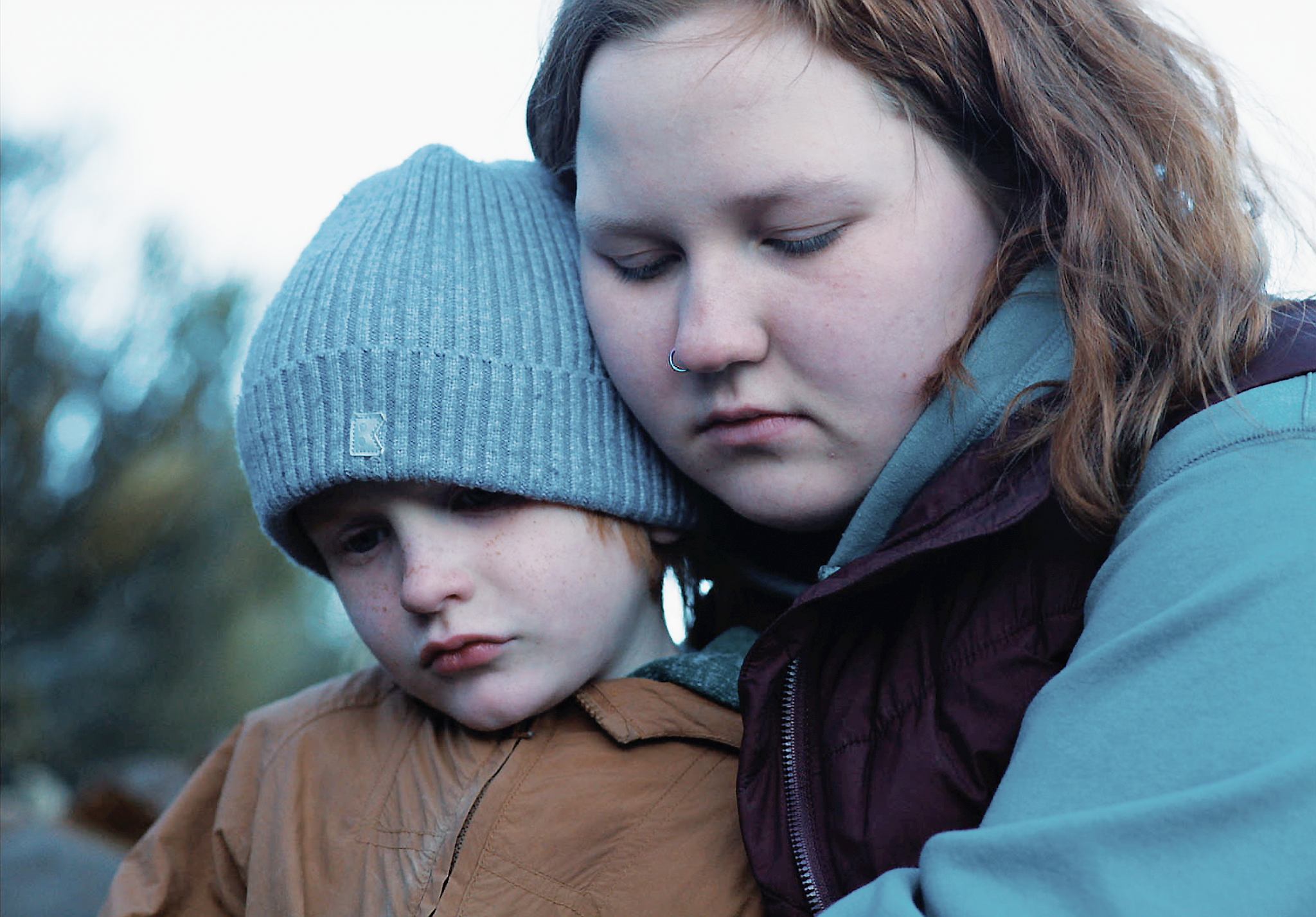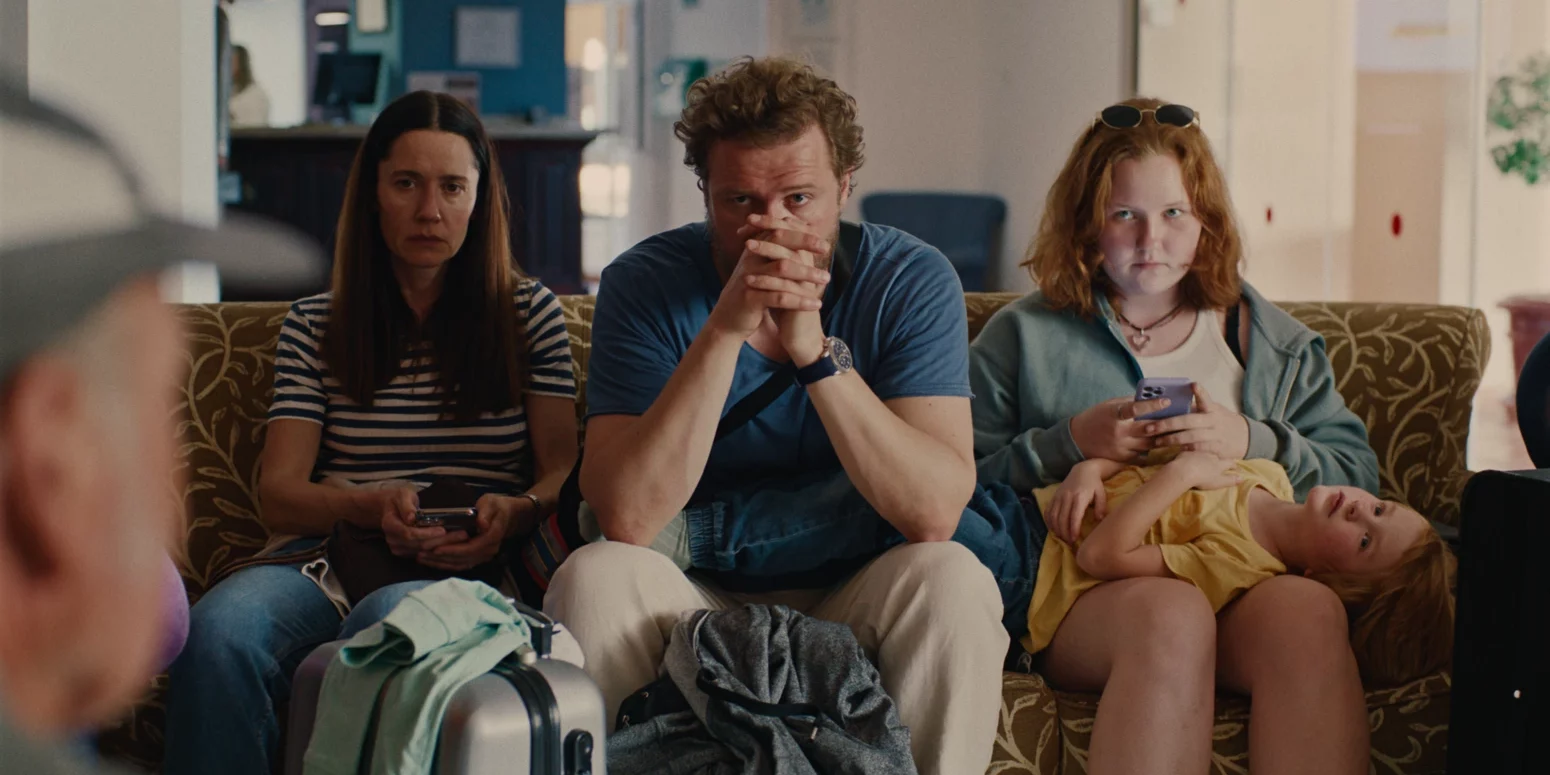A Ukrainian family on holiday in the Canary Islands learns that their return flight to Kyiv has been cancelled. Russia has just invaded their country. Six-year-old Fedir’s question: “Why is there snow if it’s a volcano?” suddenly takes on entirely different meaning. It’s not snow, it’s ash. But how do you explain that to a child?
What began as worries about finding a parking spot at the beach on their last vacation day becomes getting stuck indefinitely in a surreal situation. Father Roman, stepmother Nastya, teenage daughter Sofiia and little Fedir find themselves trapped between worlds: forced to remain tourists, far from their war-torn homeland, yet safe in Spain.
Polish director Damian Kocur deliberately chooses a different approach to war cinema. No military vehicles, soldiers or warfare—instead the film focuses on the psychological impact of conflict. The irony isn’t intended for humor, but to show a world that simply carries on while humanitarian tragedy unfolds. A conga line cheerfully dances to “Guantanamera” while the family frantically checks phones for updates from Kyiv.
The existing tensions in this blended family only complicate processing the war news. Rather than drawing together, the family begins drifting apart into separate worlds, with only Nastya feeling responsible for holding everything together.
This mirrors the story of Mike, an African immigrant who makes his living selling bracelets to tourists. Sofiia befriends Mike—though culturally worlds apart, they’re united in considering themselves exiles.
Notably, all actors use their real names for their characters. The film is anchored by excellent central performances. Ultimately, it’s sound more than images that conveys war’s intrusion into these characters’ lives.
By shifting focus from fighting to a family dealing with consequences hundreds of kilometers away, this becomes a different kind of war film equally effective at conveying devastation. A story about how ordinary people cope when their world suddenly becomes something entirely different.







